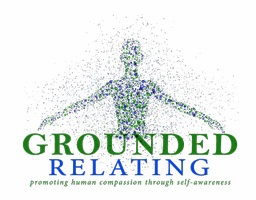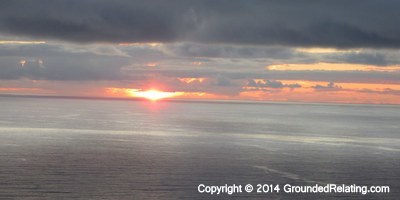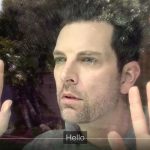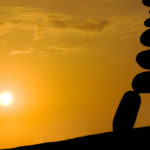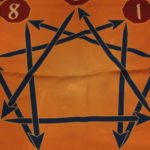Self-knowledge: a living act of IS-ness
According to Lebanese philosopher Kahlil Gibran, knowing “Self,” learning to possess self-knowledge, is like entering a boundless sea. Gibran describes this living act of self-knowledge more fully in his book The Prophet, and more specifically, in his poem “On Self-knowledge,” which is today’s quietly silent but very profound Grounded Relating Monday Music Challenge.
Kahlil Gibran’s 1923 poem “On Self-Knowledge” (full poem listed below) from The Prophet makes several interesting points which are replicated not only in today’s modern music, but also throughout time. Gibran’s concepts, after a fashion are timeless, like the Universe and IS-ness itself. This notion of steadfast symmetry through time is comforting, no? Pulling from the lyrical pool of mainstream, and ancient society, we can look at and discover the timeless clues how ordinary people have chosen to find peace with their own egoic tendencies.
Physical incarnation: a being-ness form?
Some of those clues are very sensately organized. Hibran’s self-knowledge poem names the Body Temple Wisdom with phrases about the heart’s knowing, the ears thirst, voiced words and silent thought, as well as “fingers [touching] the naked body of your dreams.” These notions seem to suggest that perhaps this physical incarnation is not such a bad thing after all….it’s just one of the many, many options available to our being-ness.
According to the Facebook Kahlil Gibran Author page: “Khalil Gibran (1883–1931) was a Lebanese artist, poet, and writer. Gibran is the third best-selling poet of all time, behind Shakespeare and Lao-Tzu. His best-known work, The Prophet (1923), has been translated into more than forty languages.” And since Salma Hayek recently produced an animated feature film incorporating material from The Prophet, there’s been some Hollywood buzz about this 1920s book-turned-film. The film premiered at the Cannes Film Festival Summer 2014, and opened to the public in late summer 2015.
Touching your naked dream body
Last week’s Monday Music topic of illusory duality dovetails nicely with this week’s self-knowledge topic. The act of living, of doing instead of being, on this planet is illusory in nature, and Gibran’s poetry in The Prophet illuminates the difference. We are a sensate bunch, with eyes and ears that long to be used to help us explain our heart-felt experiences in the physical plane. Gibran states:
Your hearts know in silence the secrets of the days and the nights.
But your ears thirst for the sound of your heart’s knowledge.
You would know in words that which you have always known in thought.
You would touch with your fingers the naked body of your dreams.
It’s an interesting construct, the idea of touching the “naked body of your dreams.” What does that mean? Dreams are illusory, a figment of our imagination. Dreams are also a great motivator and help us create things in this material world, which were not yet tangible. The Wright brothers dreamed of flight. Thomas Edison dreamed up the light bulb.
Gibran says “You would touch with your fingers the naked body of your dreams. And it is well you should.” While it is one thing to imagine something with your mind’s eye, it is so much better to experience notions in a tactile fashion…thereby making real what had previously only been imagined. Spiritual experience can also be like that, if held with a certain lens of curiosity. Gibran suggests this is the natural way of things for humans:
The hidden well-spring of your soul must needs rise and run murmuring to the sea;
And the treasure of your infinite depths would be revealed to your eyes.
Fumbling ego: a natural learning experience
Is Gibran saying we must run and murmur? Instead of saying not-this-thought and not-that-thought, or more colloquially, “My ego shouldn’t tell me to do this;” “My ego is bad;” “My ego this or that….”—instead of all that, is Gibran suggesting that the fumbling ego is a natural course of learning and experiencing for us humans? Perhaps suggesting when you can’t beat them, join them, from a higher aspect?
When your ego is in the saddle, is satiety just on the other side of resistance? Can satiety be had by just saying, “Yes, I am that.” Instead of denial, resistance, a litany of not-that, not this; instead of that, is the answer to just say, “Yes, I am”? “The hidden well-spring of your soul must needs rise and run murmuring to the sea.” Instead of not this-not that, the saying becomes: IT IS THIS. ACCEPT IT. IT’S NATURAL AND TO BE EXPECTED.
When you can’t find your way to neutrality by denying experience, claiming what something is not, would claiming what something actually is –even if/when it is egoic!—be helpful? Can ease be found by naming your pain, discomfort, confusion, or whatever else you generally deny exists for you? This is a very, old and long-existing theological debate that has waged for centuries. The negative theology or apophatic theology tries to know God or Spirit through naming what God or Spirit is not. The opposite of that philosophy is cataphatic theology which tries to understand God or Spirit through positive understandings or in a life-affirming rather than the life-denying way of apophatic theology.
Life is multiplictous and dual by nature. Why wouldn’t there be dual and opposing methodologies to interface with life? From that way of thinking, can the line “For self is a sea boundless and measureless,” be interpreted to mean simply: Accept and surrender to the chaos of the unknown? Certainly life is chaotic. And certainly, resistance and denial prevent peace and bliss. So maybe if you can’t accept telling yourself to stop being egoic, maybe you can accept naming for yourself, “Oh…I’m being egoic. I have options. I can choose to continue being egoic, or I can stop. Let me pause, and reflect, before I choose and continue.”
Celebrating a truth, not THE Truth
Gibran’s poem continues, perhaps with a warning, or a caution around one-to-one thinking, or seeking outcome related experience. As a solution to that egoic trap, Hibran suggests open-ended thinking, all-inclusive Yes-AND! experiences, and acknowledgement of all the souls walking upon all the paths.
Say not, “I have found the truth,” but rather, “I have found a truth.”
Say not, “I have found the path of the soul.” Say rather, “I have met the soul walking upon my path.”
For the soul walks upon all paths.
The final lines of “On Self-Knowledge” suggest that the spiritual path is not so much linear as it is multifaceted:
For the soul walks upon all paths.
The soul walks not upon a line, neither does it grow like a reed.
The soul unfolds itself, like a lotus of countless petals.
If you are interested in knowing more, here’s a BBC article from May 2012, entitled “Kahlil Gibran’s The Prophet: Why is it so loved?”. And here’s the official movie trailer for The Prophet:
Read the “On Self-Knowledge” poem for yourself, as posted on katzanddogz.com and reflect this week on how self-knowledge informs your daily life. Tune in next week for another Grounded Relating Monday Music Challenge.
“On Self-Knowledge,” from Kahlil Gibran’s book The Prophet
And a man said, “Speak to us of Self-Knowledge.”
And he answered, saying:
Your hearts know in silence the secrets of the days and the nights.
But your ears thirst for the sound of your heart’s knowledge.
You would know in words that which you have always known in thought.
You would touch with your fingers the naked body of your dreams.
And it is well you should.
The hidden well-spring of your soul must needs rise and run murmuring to the sea;
And the treasure of your infinite depths would be revealed to your eyes.
But let there be no scales to weigh your unknown treasure;
And seek not the depths of your knowledge with staff or sounding line.
For self is a sea boundless and measureless.
Say not, “I have found the truth,” but rather, “I have found a truth.”
Say not, “I have found the path of the soul.” Say rather, “I have met the soul walking upon my path.”
For the soul walks upon all paths.
The soul walks not upon a line, neither does it grow like a reed.
The soul unfolds itself, like a lotus of countless petals.
